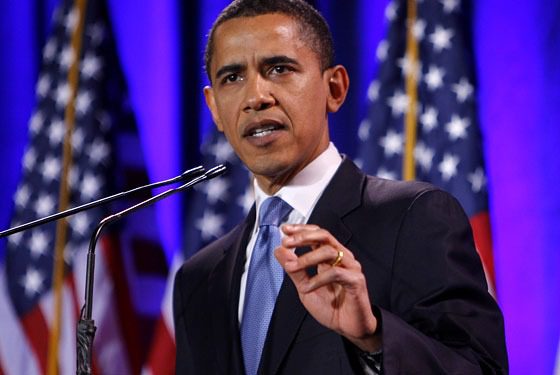Global Issues
Obama’s Middle East Misadventure and the Rise of Radical Islam -By Majeed Dahiru


The Obama administration’s foreign policy in the Middle East has contributed immensely to the rise of radical Islam and worldwide jihadist movements. His policy of appeasement and compromise, which is characterised by hesitation, indecision and contradiction, has only succeeded in further complicating the already complex situation of the predominantly restive Muslim Middle East region.
Historical Fault Lines
This historic region is fraught with deep fault lines along religious and racial divides. The root of the three leading monotheistic faiths of Judaism, Christianity and Islam is traceable to the region. These differences have often times found expression in economic and political struggle, with conflicts and wars as consequences. The region has witnessed bloodshed and massive loss of lives over several centuries. The Middle East region is richly blessed with oil mineral resources which have attracted a lot of foreign interest, particularly from the Western powers of Europe and the United States of America. In order to have access to the oil mineral resources of the region, estimated at 266 billion barrels of proven reserves of crude oil, Western powers have often applied a realist foreign policy in the region, which has left a deep feeling of suspicion and mistrust on the part of the predominantly Muslim population against the predominantly Judeo-Christian Western nations.
The Palestine-Israeli Conflict
President Barack Obama’s greatest foreign policy misadventure in the Middle East has been his inability to move the Arab-Israeli peace process forward. Due to his irregular policy initiative, the peace process has collapsed almost completely.
Palestinians have been reduced to a fully subjugated people and their territories occupied, with the rapid expansion of illegal Jewish settlement in the West Bank and East Jerusalem, which constitutes a clear violation of the Fourth Geneva Convention, leaving the Palestinian people without any hope for statehood. His inability to carry out, conclusively, a fundamental shift from the traditional Washington-Tel Aviv foreign policy with the aim of a quicker and amicable settlement and final resolution of the Palestinian issue, in line with his initial intention, has only succeeded in reducing the people of Palestine to hopelessness, while also alienating the Israelis who are traditionally the most trusted ally of the US in the region.
Consequently, the United States has lost its leadership role in the Middle East and a very defiant Israeli government might, under Prime Minister Benjamin Netanyahu, has been unleashed unchecked on the Palestinian people. Currently, over 380,000 Israelis are living in the occupied West Bank with another 375,000 living in East Jerusalem. The Israel-Palestine crisis is a major source of the hate doctrine and radicalisation against the West, because it feeds the emotion and sentiment of a Judeo-Christian Western conspiracy against Muslims. The earlier the peace process is back on track and quickly perfected, the sooner the wind of radicalisation will wane and the World will become a more peaceful place. The failure of the entire international community, led by Europe and the United states, to peacefully resolve this ugly situation it partly created and bring to an end the human tragedy that is Palestine today, has deepened the animosity against the Judeo-Christian West throughout the Muslim world. This situation, more than any, has provided ideological weapons for radical Islam. However, President Barack Obama has only left the people of this region hopeless by his non-decisive and lack of clear leadership approach to the issues.
The Obama Complication
Senator Barack Obama got elected as the president of the United States in 2008, on the promise of CHANGE. As a senator, from Illinois, Chicago, he opposed the invasion of and war in Iraq. This narrative resounded well before the American people who were war weary and clearly disenchanted. The war, from the beginning, was unpopular both at home and abroad. Approximately 60 percent of Americans opposed the war based on the fact that the premise for war was false. Saddam Hussein was alleged to be in possession of weapons of mass destruction. However, several independent and credible sources rightly disputed this claim. The war in Iraq further strained the already frosty relationship between the United States and the Muslim world.
President Obama proposed a new approach to the American-Middle East relations, which would be based on mutual respect and cooperation aimed at assuaging the feeling of suspicion that has existed between both peoples. He quickly set a time-table for a phased withdrawal of combat troops from Iraq and faithfully attempted to implement it. President Obama has since been steadfast in his no boots on the ground policy. He showed enthusiasm for a quick and just resolution of the Israeli-Arab peace process and consistently pushed for a two state solution along the 1967 line of armistice, living harmoniously and peacefully, side by side. This show of tactical deviation from Washington establishment foreign policy, earned him praise and accolades worldwide and particularly from the Muslim world. He was awarded, early in his administration, the Nobel Peace Prize in clear appreciation of his peace efforts.
However, the Nobel Peace Prize proved to be his greatest undoing. As a recipient of the distinguished award, he tried hard to live true to his reputation and, in the process, his duties as the Commander in Chief of the World’s most powerful nation has suffered greatly. In pursuit of peace, he has allowed both the state and non-state actors to take the advantage of his pacifist policies to undermine vital US strategic security and economic interests. Severally, he failed to act quickly and decisively, to arrest the situation the region found itself in. His hurried withdrawal of troops from Iraq and his no boots on the ground policy were taken too far and have proved to be a tactical military mistake.
Bush and the Iraqi Question
For the records, the invasion and war in Iraq in March 2003 (Operation Enduring Freedom) was and remains unjustifiable. The war was believed to be a personal project of vendetta of President George Bush, backed by the Republican power establishment. A war based on false intelligence on the possession of weapons of mass destruction remains one of the greatest foreign policy blunders of the United States of America in modern times.
However, that President George Bush fought a wrong war does not mean that President Barack Obama should not fight the right war and save the world from forces of destabilisation. The United States has a tradition of standing up to defend oppressed people everywhere in the world. This great nation has, time without number, sacrificed for others to live. If President Franklin Delano Roosevelt wasn’t decisive during the Second World War, and refused to put boots on the ground, the consequence of a Hitler dominated world could better be imagined. If President Bill Clinton did not swiftly intervene in the Balkans, many more Muslim Bosnians would have been slaughtered.
Political Islam In the Mix
Another contentious issue that has contributed to the rise of violent and radical Islamic movements is the inability of political Islam to find space and expression through a democratic process. Political Islam is a system wherein aspirations by Muslims to be governed by Islamic law, the sharia, can be achieved through an electoral and people-centered democratic process. To an average Muslim, Sharia law is the answer to all human problems. A utopia of some sort. It is believed to be a divine law, infallible and without which, its total application, one’s faith as a Muslim is considered incomplete. These are the reasons why Islamist groups enjoy mass appeal and legitimacy among a broad section of Muslims. A good example of a democratic Muslim country is the Islamic Republic of Iran. However, it is regrettable to note that Western powers have often conspired with their traditional allies in the region to frustrate political Islam out of the fear of having a radical regime at the head of a legitimate state. Recall that the Front for Islamic Salvation (FIS), an Islamist party was set to take power through a free and fair democratic process in Algeria in 1990, but the elections were cancelled and a coup by the military ended the entire process. This began a prolonged armed conflict which claimed thousands of lives. Several years later in 2005 when Hamas was overwhelmingly elected by the Palestinian people, the western world refused to recognise or negotiate with the Islamist party, despite being democratically elected. When Islamic rule cannot be achieved through a peaceful democratic process, the only other option will be to resort to violent agitation and radical jihadist movements.
Violent crackdowns and brutal suppression of Islamic political groups like the Muslim brotherhood, have given rise to radical and violent Islam as an alternative. A people have the right to be governed by whatever form of government they wish.
The Coup In Egypt
Recently, President Barack Obama stood by and allowed a Muslim Brotherhood government that was freely elected to be overthrown through a military coup in Egypt. Leadership and membership of the Justice and Freedom Party, the political wing of the Muslim Brotherhood, were hounded, humiliated and jailed, with the party itself proscribed. The Muslim Brotherhood is the most influential political Islamic movement in the whole of Arabia. The destruction of this movement has unleashed an army of radicalised Muslims whose beliefs and aspirations couldn’t find expression in a democratic process and have resorted to violent agitations because it has become evident to them that Islam is not compatible with popular democracy. The Egyptian experience further exposed the hypocrisy and contradiction of the Obama foreign policy initiative. A dictator has replaced a dictator in Egypt in a clear reversal of the democratic gains ushered in by the Arab Spring. President Obama should have prevented the overthrow of Mohammed Morsi, the first democratically elected president of Egypt and allow the democratic process to endure because Islam is very consistent and compatible with democracy. The fall of political Islam in the World’s most significant Muslim country has given rise to violent and radical Islam as the only alternative because it has reinforced the widely held belief in the Muslim world that the West is fighting Islam.
Syria and the Sunni-Shia War
The civil war in Syria and conflicts in Iraq and other parts of the Levant, are largely proxy wars between the Sunni power block, led by the Kingdom of Saudi Arabia and Shia power block led by the Islamic Republic of Iran. Following the invasion of Iraq by the US and its coalition partners in 2003 and the fall of the Arab Sunni regime of Saddam Hussain and the subsequent rise to power of a Shia regime under the leadership of Prime Minister Ayad Allawi, an insurgency arose from some Sunni groups who were dissatisfied with the new arrangements. Sunni Iraqis largely felt marginalised and oppressed under the new Shia leadership. The militant jihadist organisation known as the Islamic State of Iraq and the Levant (ISIL) was a major participant in the Iraqi insurgency. The group was originally founded in 1999 by Abu Musab al-Zarqawi, a Jordanian, under the acronym of Jamaat al-Taw id wa-al-Jihad (the organisation of monotheism and jihad). In 2004, about the time of the beginning of the Iraqi insurgency, Abu Musab al-Zarqawi pledged alliance to al-Qaeda and the group became known as AL-Qaeda in Iraq and carried out massive insurgency activities against the US occupation forces and their Shia regime ally in Baghdad. Following the outbreak of conflicts in Syria, the group was revitalised and metamorphosed into ISIL, which has become a major fighting force against the Iranian backed Shia regime of Bashar al-Assad. The group also made a strong attempt towards Baghdad to remove the government of Prime Minister Nuri al-Maliki, a Shia who was having a serious political struggle with the Sunni leadership of Iraq. It will be observed that this group is most active in countries with Iranian backed Shia governments, Iraq and Syria. This group which is currently led by Abu-Bakr al-Baghdadi is enjoying legitimacy among some Sunni Arabs and non-Arabs alike because of the theological differences between the two sectarian divides.
The Iran US Nuclear Deal
The Obama administration through some of its policies in the Middle East, particularly towards Iran, has alienated its traditional Sunni allies in the region, especially Saudi Arabia. The nuclear deal with Iran is one of such policies. It is unclear how the deal will prevent Iran from becoming nuclear armed because the interpretation of the deal in Tehran is different from the Washington narrative, with each side claiming victory for its national security interests, which are known to be diametrically opposite fundamentally. This has created unease in the region on the side of Sunni Arab regimes. The thought of any attempt to tilt the balance of power in favour of Iran in the region is precipitating more crises. The timing was also not very good. Iran is the champion of Shia Islam. It exports both political and radical Shia Islam which threatens the power base of Sunni regimes in the region, particularly Saudi Arabia and other Arab Gulf countries. The power struggle between these two regional rivals—Saudi and Iran, has escalated into proxy wars at different theatres throughout the volatile region.
The al-Assad Regime and Obama
Another clear failure of the Obama policy is its inability to end the civil war in Syria. This Levantine space is a majority Sunni Muslim country that is however ruled by the Assad family from the minority Allawi Shia community. The ruling dynasty was founded by Hafez Assad, when he became the president of Syria in 1972. He was succeeded upon his death in June 2000 by his son, Bashar al-Assad. However, the continuous stay of Bashar al-Assad in power is counterproductive to achieving lasting peace in the region. The al-Assad regime has crossed every red line set by President Obama. He has used chemical weapons, barrel bombs and indiscriminate air bombardment of civilian targets, including women and children. Yet, each time, President Obama has refused to act decisively. He has refused to impose a no fly zone on al-Assad and degrade his airpower. Rather he has only ordered a targeted airstrike on the Sunni insurgent group, ISIL. This is why ISIL has expanded its activities beyond their traditional aim of confronting Iranian backed Shia regimes in the Middle East to a global jihad against the West. They see the West as collaborating with their enemies.
This largely explains the efficiency of the radicalisation mechanisms of the world’s deadliest terror group and their ability to rapidly recruit members from every part of the globe. The regime of al-Assad should give way in Syria as a starting point for lasting peace. To end the scourge of ISIL and other terror groups, Syria must be freed from Assad and given back to the people of Syria through a transparent and just democratic process. A democratic process will afford the world another opportunity to test the viability of political Islam and reduce the propensity for radical jihadist movements as alternatives to achieving Islamic rule.
Majeed Dahiru, a public affairs analyst, writes from Abuja and can be reached through dahirumajeed@gmail.com.



















